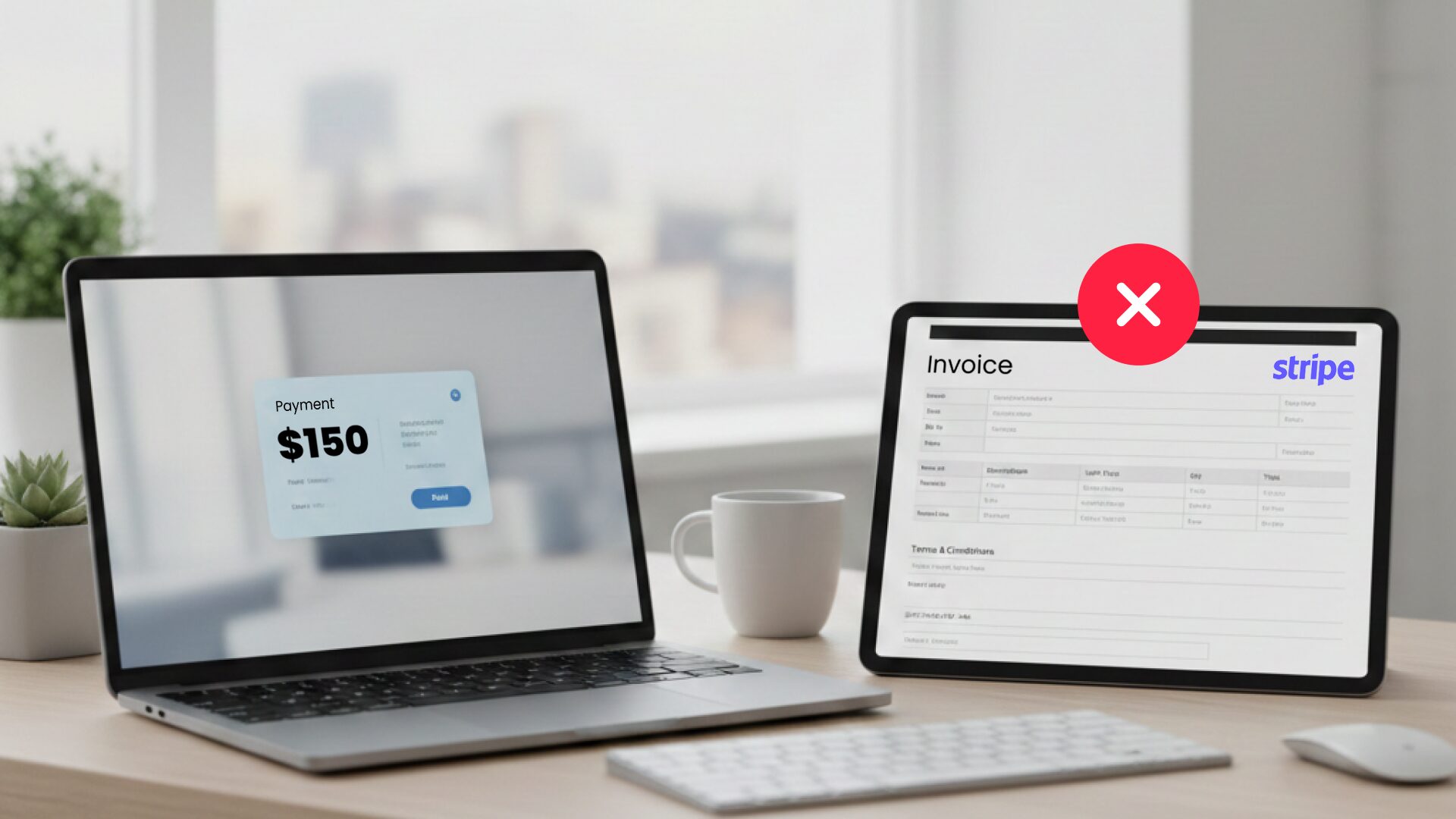7 Terrible Mistakes You Are Making With Your Estonian Company

The e-Residency program of Estonia has performed remarkable work making it easy for everybody (and we mean everybody) to have a company in Estonia and manage it online with just your e-Residency card and a good internet connection.
Still, owning a business is not easy, not in Estonia, not in any other place in the world. Especially if you are a novel entrepreneur, or have no previous experience doing business, there are a number of things you can do wrong due to a lack of knowledge or inexperience. Other times, some specific business models are subject to regulations that you need to know.
Table of contents
- Failing to understand the difference between you (as a person) and your company
- Opening a company without good business prospects
- Adding or withdrawing money from the company without a clear justification
- Triggering a permanent establishment outside of Estonia
- Dealing with cryptocurrencies without the proper licenses
- Using a Nominee Director
- Ignoring your corporate and fiscal duties
- Conclusion
We want you to do things right. Our work is making sure your business thrives and you don’t have any problems now or in the future. That is why we put together this list with the seven mistakes you should never make with your Estonian company. Well worth a look, just in case 😉.
Disclaimer: This post has been written after real experiences with some of our customers. That’s why we decided it is always nice to share these mistakes with the community to help you avoid headaches and problems with the tax office.
Failing to understand the difference between you (as a person) and your company
This is, by far, the most common pitfall new entrepreneurs fall into. Even if you own a one-person company, and the company is essentially you, it is a separate entity.
Your company is not you. That means you need to follow a strict separation between the money of your company and your personal finances. The money of the company does not belong to you, it belongs to the company.
Things you cannot do:
- Buy yourself a pair of jeans from Zara with your corporate Revolut Business card
- Pay for your food or coffee with your corporate card
- Withdraw 100€ from your corporate card at an ATM
- Invite your friends to the movies with your company’s money
Things you can do:
- Pay for a design course for yourself with the company money if your company is a design agency. That is supposed to be education for an employee of the company. Don’t forget to ask for an invoice, though.
- Pay for your laptop with the company’s card (if you ask for an invoice for your company) as long as you use your laptop to work.
Also, you need to understand this at a legal level. For example, tax-wise. Unless it has a permanent establishment somewhere else (which you should avoid, as we discuss below), your company is registered in Estonia. It is a legal entity that pays taxes in Estonia. You, as an individual, may pay taxes in the country where you are a tax resident if any.
There is a great article on Micropreneur Life explaining the differences between you and your company in detail.
Opening a company without good business prospects
Even though Estonia makes it super easy and super simple to open a company online, a company means commitment. Owning a company is something you should take seriously. It is not something you should open “just to try an idea”. You need a business that works, or at least a business you are confident enough it’s going to work.
Closing an Estonian company is not fast or easy. You need a local liquidator from Estonia. It is a process that can take 9-10 months, and cost hundreds or thousands of euros, depending on the legal firm or liquidator you choose.
So if you have a business or an idea that is working, or at least good prospects of working, don’t hesitate, open your company now. However, if you are just playing with an idea that might or might not work, do some research first or try, at least, to get an initial customer before opening the company.

Adding or withdrawing money from the company without a clear justification
As we mentioned before, you cannot simply use your corporate card to buy yourself a pair of jeans. Every money that comes in or out of the company needs a justification.
For the money that comes in:
- For sales, you need a sales invoice.
- For investment earnings from platforms such as Mintos, etc, you need a receipt of the withdrawal movement from Mintos, and also a statement of the investment operations made with your money since you added that money to the platform.
- For passive income generated from affiliate links, Google Adsense, ads on your website, etc, it is the same situation. You need an invoice from the source of the money, or it cannot be accounted for in your company.
For the money that goes out of the company:
- If it is an expense, you will need a purchase invoice, but remember, it needs to be a justified business expense.
- Some expenses like trips or accommodation for board members may just need one receipt.
- If it is a salary for one of your employees (or yourselves), we need the employment or board member employment contract.
- If it is dividends, we need a signed resolution by the members of the board to distribute dividends.
- If it is a payment for state fees for the government of Estonia, we don’t need any additional documentation.
Remember that, if you need to pay for an expense of the company, but you only have your personal cards or money with you, you can always ask for an invoice for your company, pay it with your personal money, and mark it as Out Of Pocket expenses to recover that money later.
Triggering a permanent establishment outside of Estonia
A “Permanent Establishment” of your company outside Estonia is the situation that happens when another country decides that your Estonian company is a tax resident there, not in Estonia, and thus, needs to pay taxes in that other country, not in Estonia. This is not good news.
Different countries have different rules to decide what triggers a permanent establishment. Some countries have CFC (Controlled Foreign Corporation) rules that define what is a CFC company, i,e: a company that was founded overseas but has a permanent establishment in the country. Many countries also have a double taxation treaty with Estonia to define when this permanent establishment happens.
While these rules vary from country to country, you should take into account that:
- If your Estonian company owns or rents an office or has certain goods like a car outside of Estonia, that will trigger a permanent establishment.
- If the majority of the directors of the company (i.e: if your company is just you) live in a country with CFC rules or are tax residents in any of these countries, that will trigger a permanent establishment.
- Sometimes, the employees of a company can also trigger a permanent establishment. This is usually applied to directors (members of the board), but in some very concrete countries, other types of employees can trigger a permanent establishment. If in doubt, it is always good to check before hiring employees that they will not trigger a permanent establishment outside of Estonia.
If a permanent establishment is declared outside of Estonia, you will need to find a local accountancy firm in that other country, and will, in fact, lose most of the remarkable fiscal advantages from the Estonian business system, like taxation on distributed profit only.
IMPORTANT NOTE: with the new European Directive on tax avoidance of January 2020, these CFC rules don’t apply to European citizens under certain conditions. That means you can live (and be a tax resident) of any European country and manage your Estonian company online from there, without the need of being a digital nomad. More info here.
Dealing with cryptocurrencies without the proper licenses
First, are you a crypto company? What is exactly a crypto company?
If your company:
- Offers fiat-crypto exchange to third parties, that is, it offers a service that allows its users to exchange euros, dollars, etc. for bitcoin, Ethereum, or any other cryptocurrency.
- It manages the finances of users or clients in cryptocurrencies, that is, it manages wallets of its users or clients that contain cryptocurrencies.
- Pays its employees in Bitcoin, Ethereum, or any other cryptocurrency.
- Has or is preparing its own token with economic value (security) / or is preparing an ICO or similar.
- Wants to launch an exchange, or a wallet service, that owns or manages tokens or cryptocurrency on behalf of its clients.
In any of these situations, your company is a crypto-business and needs to obtain the correct licenses to operate.
On the contrary, if your company only exchanges fiat for crypto privately as an investment in well-known exchanges like Kraken, but without offering this service to third parties, you are not considered a crypto company with the new legislation, and therefore you do not need to obtain the licenses.
Crypto accountancy is a lot more complex and subject to special prices. Remember that there are high fines for crypto-companies operating without the mandatory licenses, and you may find yourself in trouble with the authorities due to AML (Anti-Money Laundering) regulations.
Crypto companies should:
- Register in Estonia.
- Obtain the necessary licenses to operate.
- Open their bank account, which is more difficult for them.
- And then, ONLY THEN, they can start to operate.

Using a Nominee Director
Some entrepreneurs are trapped by unfair business systems in their home countries. Taxes are high, bureaucracy and red tape make managing your company a nightmare, and everything seems to be designed to crush your business before it can even start generating some revenue.
Some of these entrepreneurs hear about Estonia and think they have found the answer to their prayers. An online administration with almost no red tape, taxation on distributed profit only, a simple, easy to understand, and straightforward fiscal system…
When they understand that the e-Residency program is for location independent entrepreneurs and global startups and companies, and the CFC rules of their countries won’t allow them to run their Estonian businesses while being tax residents there, some of them consider using a “Nominee Director“: They get to an agreement with someone who lives in Estonia or a country with no CFC rules to act as a director of the company, thus avoiding the triggering of CFC rules, but secretly manage their companies from their home countries.
This director is basically a puppet whose only role is making sure the company will not be considered a tax resident in the home country of the real company owner.
This practice is not only forbidden in Estonia but it is also doomed to failure. The Estonian business system is one of the most transparent ones in the world. All the information about the companies, directors, shareholders, and even fiscal data, is completely public and available online.
Ignoring your corporate and fiscal duties
Accountancy in Estonia is done on a monthly basis. That means that, when a new month starts, we need to do the accountancy of your company for the previous month. This implies first of all collecting from you all the necessary invoices, bank statements, and other documentation needed. Then, we have some days to do the accountancy of hundreds of companies.
That is why it is so important to have all the documentation in place before the 5th of the following month. We need some days to process all that information, and our accountants need to take care of everything to make sure we submit all the reports on time.
Of course, we are human beings, not ruthless robots, so we understand that sometimes a provider won’t send you an invoice in time, or you may have a problem preventing you from sending us the information in time. But if that happens repeatedly, or with many invoices, or you fail to provide essential documents in time, it is your responsibility.
It is critical that you understand what we mentioned before. You are responsible for your company. It implies commitment, and it is something to be taken seriously. Not fulfilling your obligations in time with the tax authorities may incur fines or even money laundering charges for high volumes of money.
Corporate and fiscal duties bonus: important legal aspects when hiring employees
When hiring employees in other countries outside of Estonia, including the shareholders or members of the board of the company, you must be careful to observe certain legal aspects. Sometimes, such as when hiring employees in Europe (and other countries), your Estonian company may need to pay social security or some kind of social taxes for those employees. If that happens, you have several options, such as asking the employees to become professionals or freelancers (in that situation, you do not pay them salaries, but they invoice your company every month) or that the company registers as a taxpayer in their countries and pays social taxes in the employee’s country.
In this article, we talk about these legal aspects when hiring employees in detail. It is important that you read it if you are hiring employees who live outside of Estonia.
Conclusion
In this article, we enumerate the most common and problematic mistakes we have found during our experience as service providers of the e-Residency program of Estonia. Most of them are due to the lack of knowledge or experience of the members of the company. That’s why we decided to write this post and help other entrepreneurs avoid these common pitfalls.
 Ignacio Nieto
Ignacio Nieto


